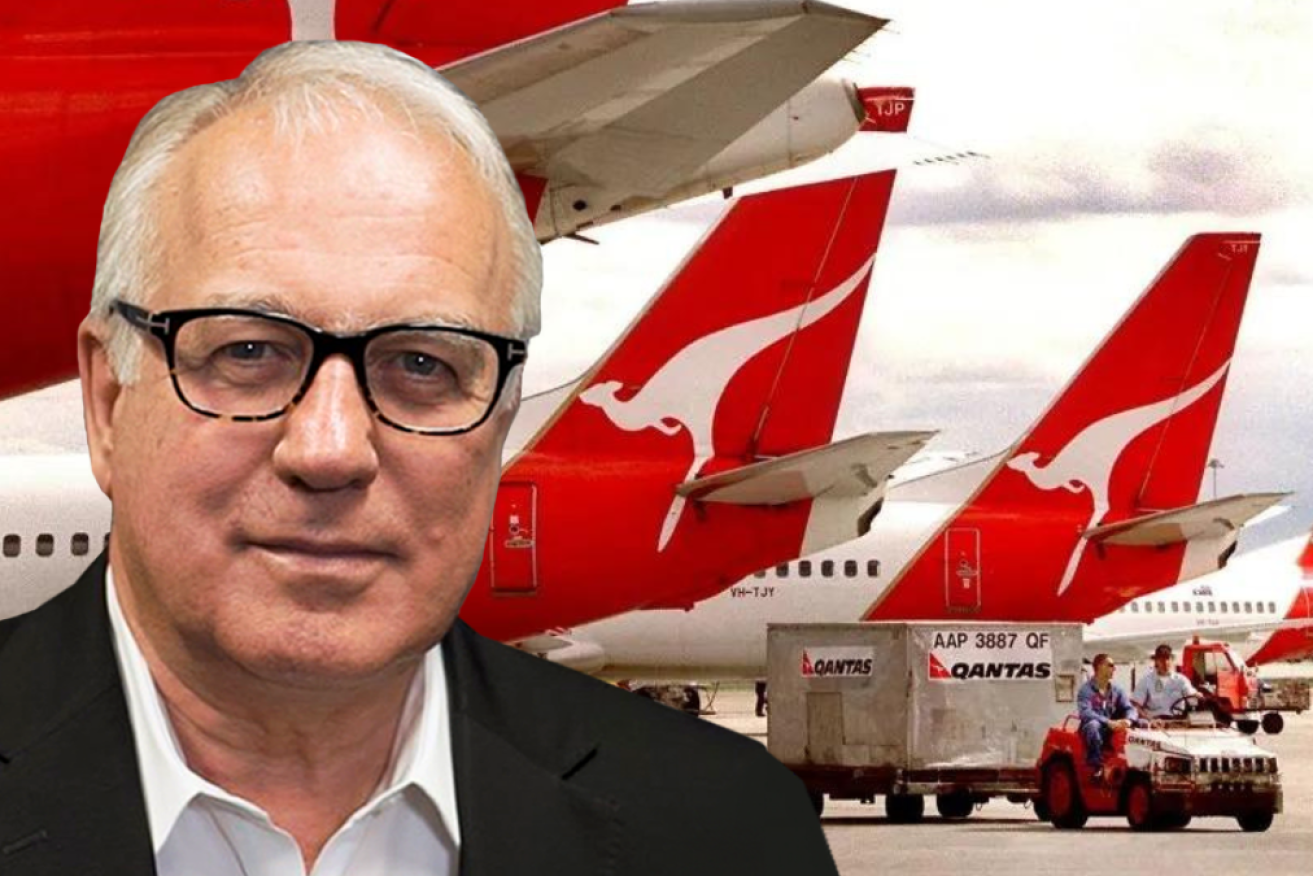Alan Kohler: Qantas strife is a lesson about the value of stakeholders


Photo: Getty/TND
Qantas’s loss in the High Court, and the trouble that the airline is in more generally, is a lesson for all companies about the meaning of the word ‘stakeholders’.
Not that many businesses need that lesson these days, which is why Qantas stands out so much. Its treatment of customers, employees and the community – the stakeholders other than the owners – has been a model of how not to behave as a corporation in the 21st century.
But the growth of labour hire firms like the ones to which Qantas outsourced its baggage handling and cleaning in 2021 shows that the airline is far from alone in wanting to avoid negotiating with its staff.
As Josh Bornstein of lawyers Maurice Blackburn pointed out after the High Court decision in Qantas v TWU, it was a “collective bargaining avoidance scheme”, and that “outsourcing has been one of the reasons that employees have lost the ability to obtain real wage increases”.
More than that, it breaks down the relationship between management and staff that is central to any company’s culture, and therefore its productivity.
I’ve argued here before that Australia’s productivity growth has declined because workers are disillusioned and disengaged.
The boom in outsourcing is a key reason for that because it means workers aren’t even employed by the company, and their relationship with it is fractured and unsympathetic.
The Qantas baggage handlers are among its stakeholders and while treating them badly, along with customers, might improve profits it corrodes a company’s culture and its foundations.
First-hand experience
I recently had first-hand experience of how Qantas treats its customer stakeholders.
We were at Dubai Airport on the way back from a holiday in Europe last week, in gate lounge A16 waiting for the 2am Emirates/Qantas flight to Melbourne to board. The gate area was full, not enough seats so we were perched on side tables, kids were crying, everyone was tired but doing our best to be stoic and polite, the customers that is, not the staff. It was hot.
We had booked with Qantas (yes, I know – what were we thinking?) but we’ve always travelled Qantas and anyway the flight was a code-share with Emirates, so we thought that should be OK. Silly us.
The time for boarding passed. At 2.15am there was an announcement: They were sorry for the delay but it won’t be long, thank you for your patience.
Then, at 2.45am came what everyone in the gate had been dreading, but was still shocking: “Due to technical problems, the new departure time for this aircraft is 11am.”
That’s it. A nine-hour wait in transit at Dubai Airport was simply announced like that, no explanation, no apology and no discussion. About half the passengers would have been Qantas customers, like us, but there was no one from Qantas present. Everyone was left to fend for themselves.
It was bedlam
We heard that first-class passengers managed to get a free room in the airport hotel, but only after staging a long and noisy revolt, which is amazing considering how much they had paid. Everyone else was on their own. It was bedlam.
It turns out this was not an unusual experience for Qantas or Emirates customers. According to the airline data firm, OAG, Qantas was 95th on the global league table of on-time flights in July this year, with 76.7 per cent of flights on time, a bit better than Caribbean Airlines and two places worse than Air Caledonie. Emirates was worse still, with 74.3 per cent on time.
(By the way, there were three airlines with perfect, 100 per cent on-time scores – Aero Dili of Timor Leste, Silver Air of Czech Republic and Northern Pacific Airways [now New Pacific Airlines] of Alaska. It’s not impossible.)
Qantas’s cancellations, according to OAG, were 10.4 per cent, one of the world’s highest – worse than Mongolian Airlines and double those of Wizz Air of the UK.
The domestic on-time performance of Qantas is worse again: 71.2 per cent on-time in July, according to the government’s Bureau of Infrastructure and Transport Research Economics, although domestic cancellations were less at 3.8 per cent. It was beaten on that score by Virgin, with 5.6 per cent.
This is why the brand of Australia’s national airline has been trashed, and that of Virgin as well, on top of the internal corrosion of outsourcing – pretty much everyone has had a flight delayed or cancelled, and been treated poorly in the process.
You pay for a ticket and enter a contract with the supplier. The terms and conditions of the contract are set out on the airline’s website, which no one reads of course, and the ACCC website advises that “airline conditions of carriage do not include a guarantee of flight times. Consumers should not assume that a plane will meet its exact advertised schedule”.
The ACCC goes on to explain that some airlines may give different levels of compensation and help, but they “should be proactive and truthful in telling consumers the reasons a flight is delayed or cancelled”, and “should also tell consumers what compensation they may be entitled to under both the airline’s policy and the consumer guarantees”.
And then, of course, there’s Qantas’s alleged practice of selling tickets for flights that have already been cancelled. It is being sued in the Federal Court for that by the ACCC.
Focus on profits
But in the ACCC’s media release announcing that action, there was a paragraph that brought an “Aha! I knew it!” from your correspondent:
“We allege that Qantas made many of these cancellations for reasons that were within its control, such as network optimisation including in response to shifts in consumer demand, route withdrawals or retention of take-off and landing slots at certain airports,” chair Gina Cass-Gottlieb said.
The ACCC is not suing Qantas for cancelling flights simply to maximise revenue, but it should. At the very least the ACCC, or someone else, like the aviation regulator Airservices Australia, should investigate and publish how many flight cancellations were made because the planes weren’t full enough or for some other purely profit-making reason.
It seems to me Qantas’s appalling treatment of its customers as evident from the data as well as my experience and plenty of other anecdotes, plus the ACCC legal action should have meant Alan Joyce was sacked for cause well before he brought his retirement forward two months, no matter how magnificent the company’s profit.
And the fact that his successor Vanessa Hudson is having to mount a reputation rescue as well as invest billions in new planes that should have been bought already, and deal with the compensation fallout of the loss in the High Court, must mean his bonuses are forfeit.
Best if the board went too
Should chairman Richard Goyder and other directors go as well? Yes, probably, if only because these things are better ruled off if somebody takes public accountability.
Meanwhile, the government has issued an Aviation Green Paper to harvest submissions for a White Paper to be prepared next year.
Under consumer protections it says: “Strong competition in an industry can be expected to produce better outcomes for consumers.”
That may be true in theory but there is no strong competition in Australia’s airline industry and having just refused permission for Qatar Airways to land more flights here, there is nothing in the Green Paper to suggest the government is planning to do anything to boost competition, especially not by allowing foreign international airlines to carry passengers between Australian cities.
The Prime Minister and his Transport Minister Catherine King need to be careful they don’t get tangled in Joyce’s and Goyder’s parachutes.
Alan Kohler writes twice a week for The New Daily. He is finance presenter on ABC News and founder of Eureka Report








